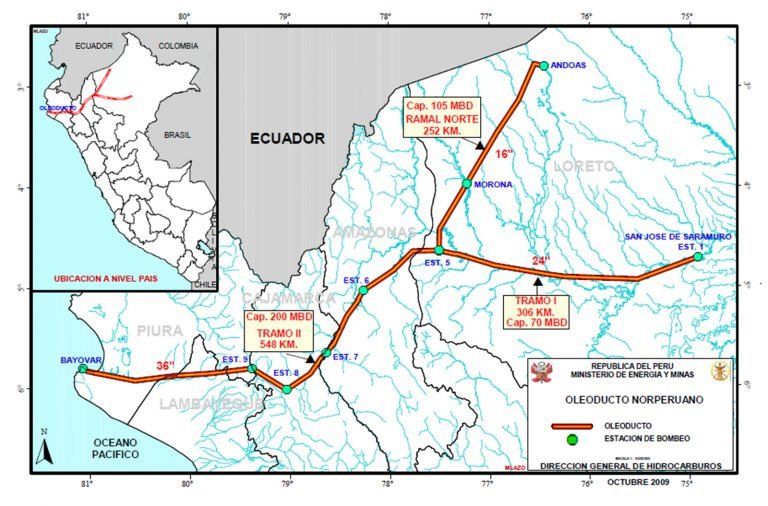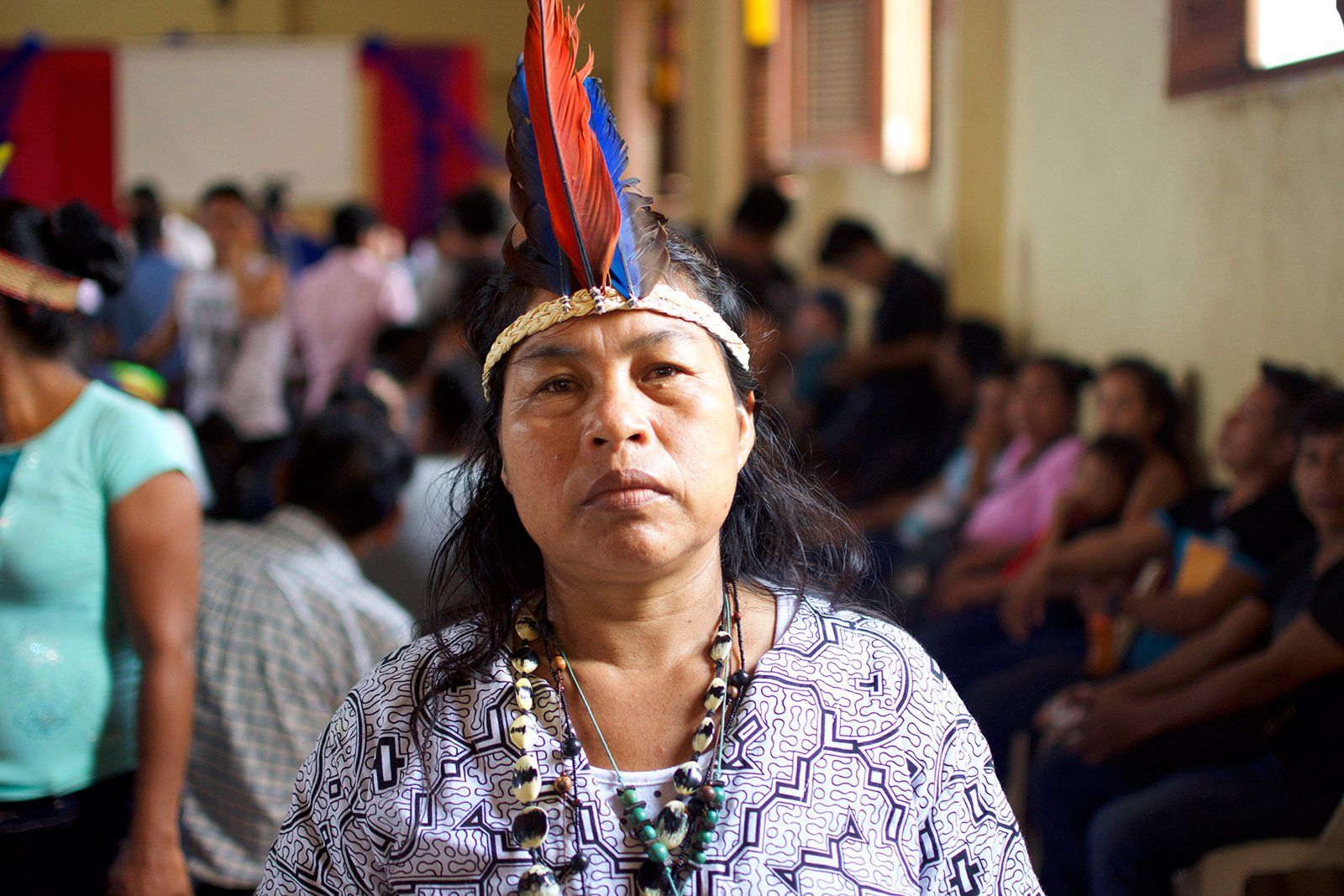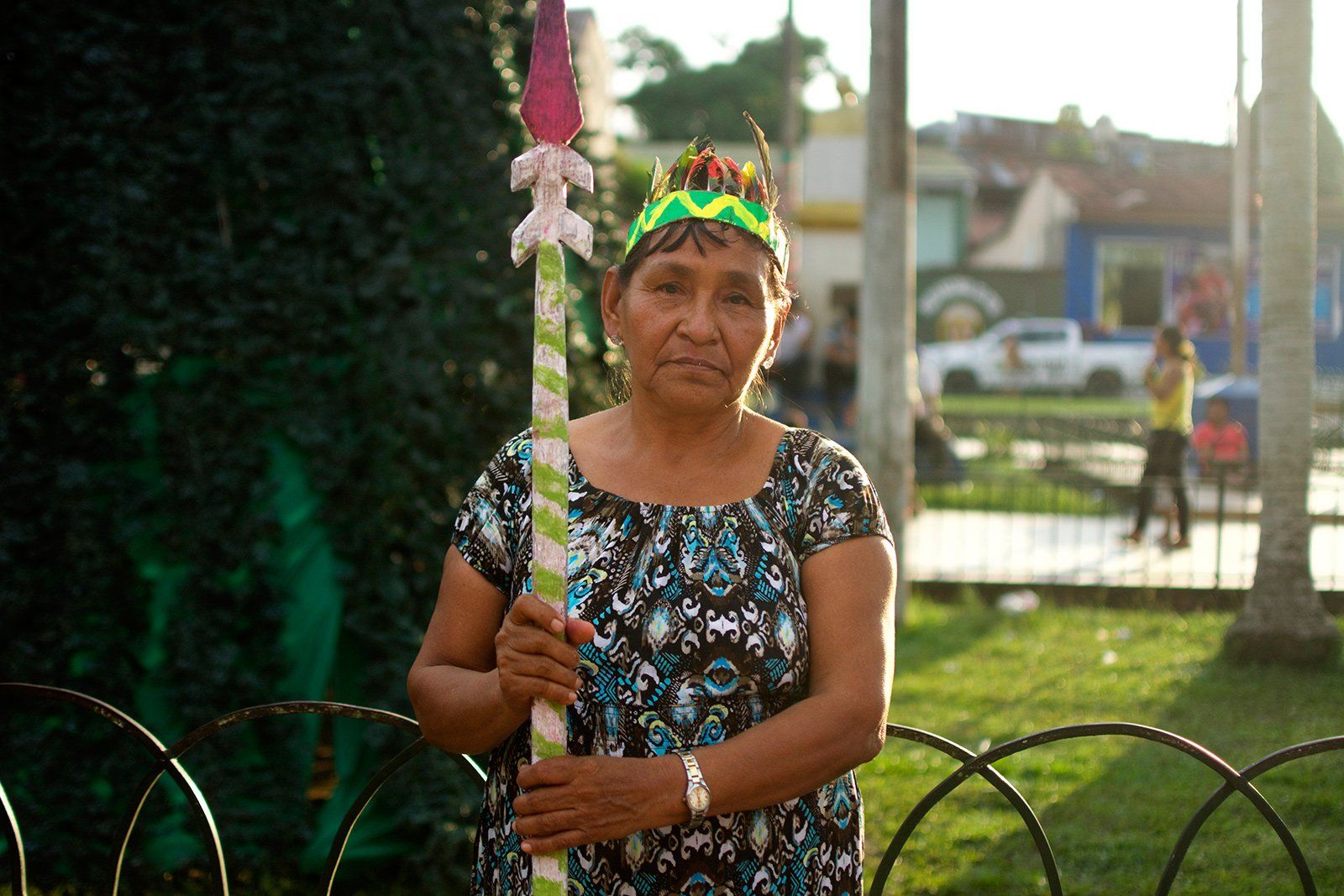By
Rivers are life for Amazonian peoples. Yet in Peru’s northern region of Loreto in the Amazonian jungle, nearly half a century of irresponsible oil exploitation has left rivers, streams, creeks and lakes contaminated with heavy metals. Indigenous peoples continue to demand respect for their rights, such as the fundamental right to water.
Although women have always been present in the socio-environmental resistances against extractive projects in the Peruvian Amazon, their struggles have not always been made visible. Their voices are seldom heard in meetings with the state and women lack representation in the leadership of indigenous organizations. Being a woman, poor and indigenous is a triple discrimination, which means that indigenous women are subjected to “situations of violence, discrimination and food insecurity”, as recently stated by the United Nation’s FAO.
Today on International Womens’ Day, and every day, we celebrate the voices of indigenous women who are on the front line defending their territories and communities and present four inspiring and courageous indigenous women speaking on the importance of protecting the water and river. Hailing from the Maranon river basin, these women come from communities affected by oil spills from Peru’s rusty and leaking 854 km North Peruvian Pipeline built in 1977 and operated by state company Petroperu. Decades of spills have created a toxic environment in what was once pristine rivers and rainforest. In alliance with indigenous peoples from other affected river basins including Corrientes, Pastaza, Chambira and Tigre, these women are part of the movement demanding justice with an agenda including an independent study of the pipeline, integral remediation of oil blocks 192 and 8, and a Truth Commission.

Indigenous women spend much time in managing the lands and resources of indigenous peoples not only for livelihood activities, but also for cultural and spiritual practices. Across Latin America, from Ecuador to Guatemala and Mexico, indigenous women are increasingly organizing and taking on leadership roles to protect their territories and highlighting the links between extractivism and patriarchy. Yet in the Peruvian Amazon, indigenous women leadership still lags behind. Women must be empowered and be provided the support and the space to take leading roles and to amplify their voices.

“Water is our life, we have to protect the water. We, Indigenous Peoples, are drinking contaminated water, we get sick, we die. So many children are dying because the water is contaminated. And the fish. Everything is contaminated. That is why we are here asking for a solution. I would like everything to move forward, for the state to give us good water. We do not have water to live well.” - Maria Shunia Pirco

“Water is life. The river is like a mother we have and water is a mother of life for human beings. Now we are demanding our rights in the face of the pollution which Petroperu has caused with crude oil, ruining our mother, natural water, which is for the consumption of all human beings.
We use water every day – we cook, wash, drink with it, that is why water is the most important thing for the life of human beings. When we had clean water to drink, healthy fish to eat, we did not bother the state because we had enough food and clean water to drink. We have streams and lakes in our communities which used to be like our market but now they are contaminated. They no longer provide us with enough food. The fish are too thin. The state must immediately provide us with water and food. We, native communities, are in a state of great necessity.
The state has to solve the spills and take care of the pipeline so that these kinds of things do not happen, so that native communities do not continue to be harmed. We are putting on the pressure because the pipeline is still not secured. That is down to the irresponsibility of the state and the Petroperu company.” - Flor de María Paraná

“Water is very important because we live from it. Our waters are contaminated by the company Pluspetrol, we are very sad. Our children are dying. We no longer have fish, neither in the river nor in our lakes. There are oil spills constantly. No matter how much we try to purify and treat the water, it is not fit for human consumption. We are ingesting heavy metals, such as lead. If there is no health, there is no life. I ask the state to give us treated water and food for our children who are malnourished in our communities. The state does not pay attention to us. That is why we have protested again, and if they don’t respond then we will protest again with even more strength. There will be an indefinite protest.” - Inez Vazquez Ramirez from the Indigenous Kukama Community of San Roque, Maranon river

“The river is a source of life. Without this river, without water, we can not live. As a mother, I demand that the first priority be water, because it is contaminated. Before we lived in a well-cared for community, with all of our nature, we had no difficulties like now. Now we get up at 1 or 2 in the morning when it rains, to collect the water because if we don’t, we do not have anything to cook with. It is a great sadness for us when it doesn’t rain. The state is at fault because we really need to be supported. So far we do not see any results. As indigenous peoples, we are human beings as they are. We need respect, we have a right to life, to water, to food, and to health.”- Agnita Saboyafrom The Indigenous Kukama Community of Cuninico, Maranon river

